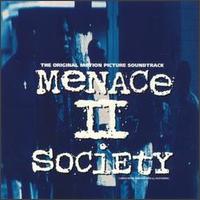


c The US Department of Transportation estimates that the average distance per shipment of radioactive material is about 55 kilometres, well below the 185 kilometre average across all hazardous materials. a Of the approximately 3,000,000 packages containing radioactive material that are shipped each year in the USA, only about 250,000 contain waste from US nuclear power plants, and just 25 to 100 contain used fuel. Since 1961, when the IAEA's safe transport regulations were first issued, it is likely that over one billion consignments have been safely completed. a Regulatory control of shipments of radioactive material is independent of the material's intended application.Ībout 20 million consignments of radioactive material take place around the world each year. Radioactive substances are used extensively in medicine, agriculture, research, manufacturing, non-destructive testing, and minerals exploration (for further information, see information page on The Many Uses of Nuclear Technology), and it is estimated that just 5% of radioactive material shipped globally each year relates to nuclear power production. Radioactive material (defined as Class 7 (see Notes) material in the UN Model Regulations on Dangerous Goods) is not unique to the nuclear fuel cycle.

More specifically, protection is achieved by: The fundamental principle is that the protection comes from the design of the package, regardless of how the material is transported. The objective of the regulations is to protect people and the environment from the effects of radiation during the transport of radioactive material, both routinely and when transport accidents occur. The IAEA regulations have been widely adopted into national policies, as well as by the International Civil Aviation Organization (ICAO), the International Maritime Organization (IMO), and regional transport organizations.

The latest edition of its Regulations for the Safe Transport of Radioactive Material was released in 2018. The IAEA has regularly issued revisions to the transport regulations in order to keep them up-to-date. International regulations for the transport of radioactive material have been published by the International Atomic Energy Agency (IAEA) since 1961. a According to the US Department of Transportation, less than 0.5% of the total cost related to the shipping of dangerous materials each year in the USA is attributable to radioactive substances. In the USA – a country that operates over 20% of the world’s civil nuclear power reactors – flammable, explosive, corrosive, or poisonous materials account for 99% of the dangerous material shipped each year. Radioactive material constitutes only a very small proportion of all dangerous goods.


 0 kommentar(er)
0 kommentar(er)
